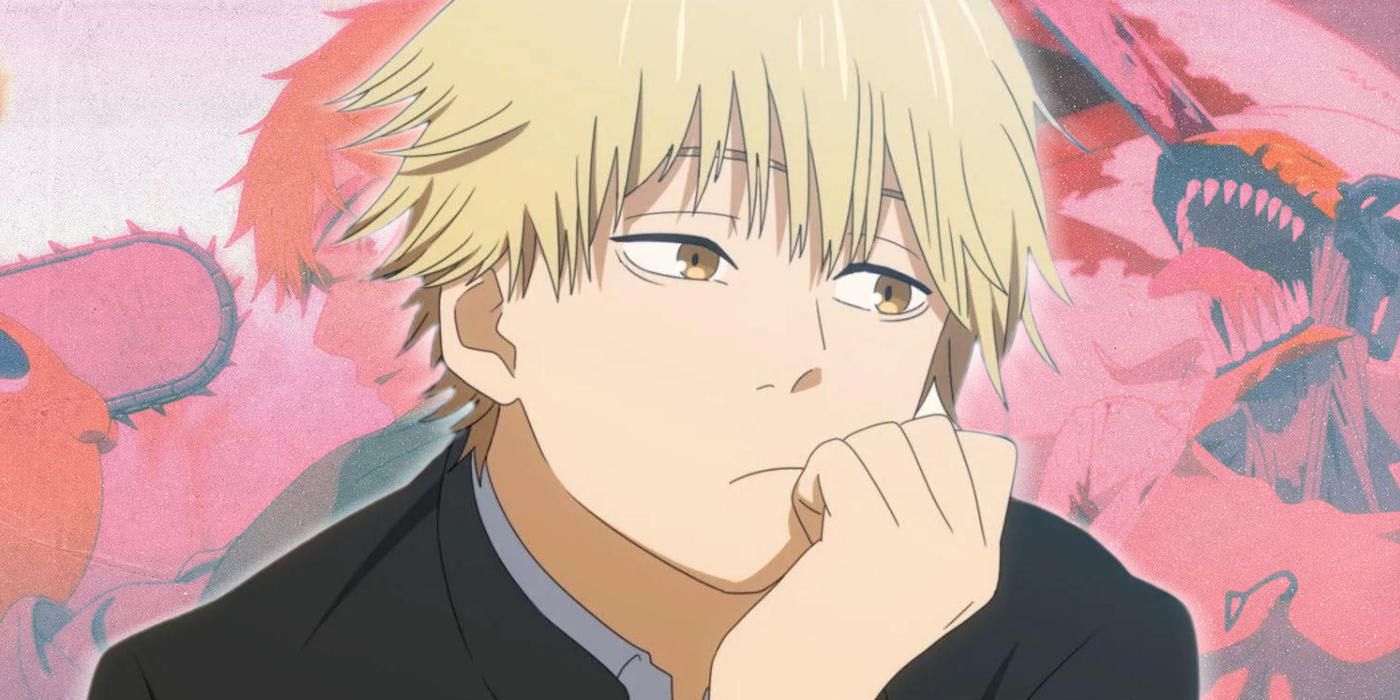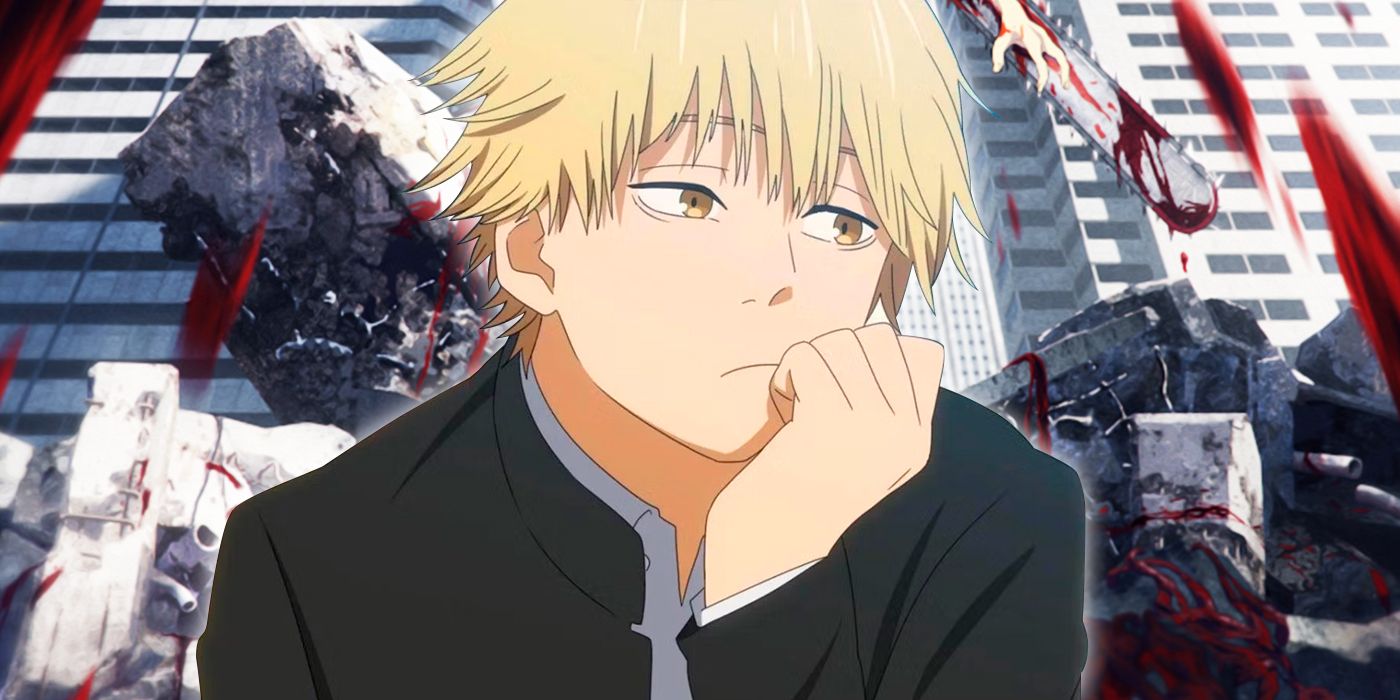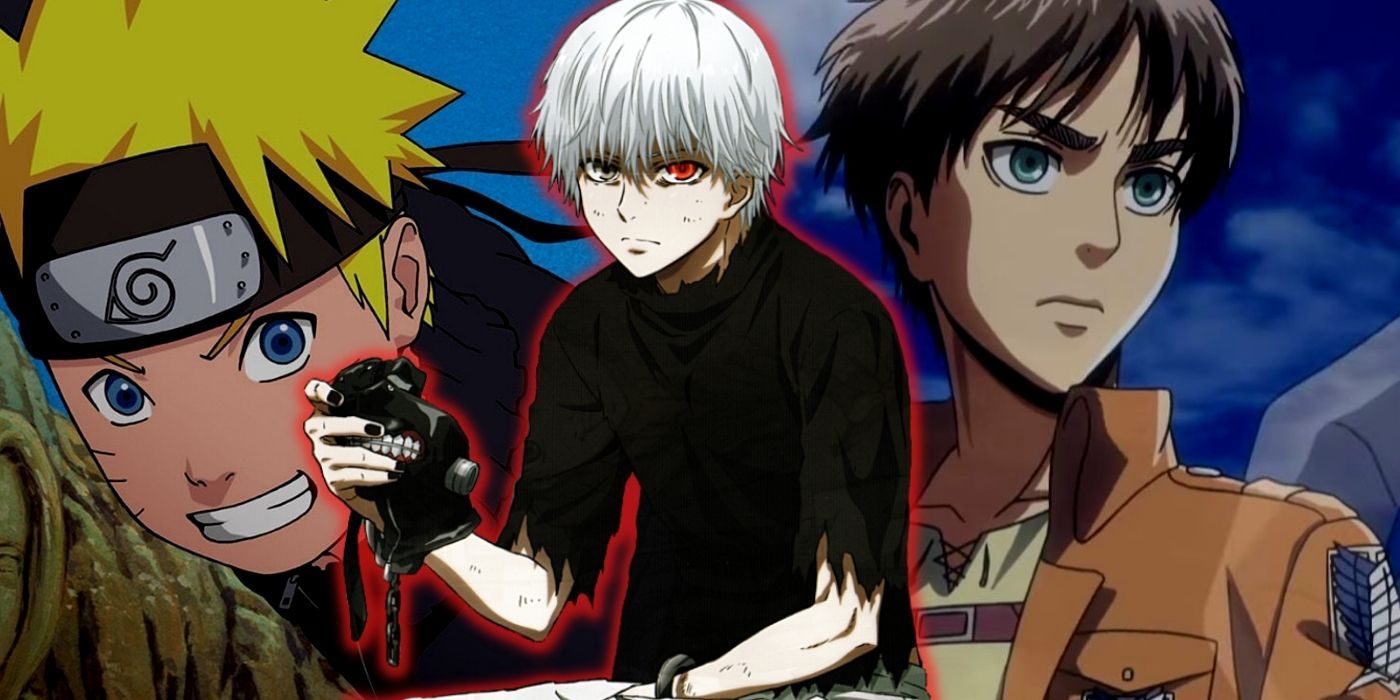The following contains spoilers for the Chainsaw Man manga.
Chainsaw Man has already built a reputation for shredding the shonen anime rulebook with its many shocking deaths, its main characters' nasty personalities and the general lack of sentimentality in this story. Protagonist Denji, a relatable teenage boy, dreams very small and doesn't believe in the power of friendship, but he does embody the classic "half-other" anime trope with his chainsaw devil powers.
Denji has been through a lot, but at least he is comfortable with his new status as a half-human, half-devil who doesn't belong in the human or devil worlds. Or rather, Denji thought so at first, only to realize that his new job and powers are eating away at what little humanity he has left, and he might lose himself to the darkness. Other anime half-others came close to the brink, too, but found their way back.
How Denji Adjusted Too Well to His Devil Lifestyle
Protagonist Denji is a half-other, meaning he gained monstrous powers that grant him new abilities and even alter his mindset. He fused with his devil dog Pochita to become Chainsaw Man, a unique being totally different from fiends who inhabit human bodies, like his partner Power and later, the shark-headed Beam. No one fully understands Denji's true nature, least of all Denji himself, so he's an experiment for the public safety commission under Makima's watchful gaze. Denji thought he had a handle on his new powers, such as improvising his fighting style and drinking blood to heal himself, but he realized too late that his powers are beyond his ability to control.
Denji can summon his powers and dispel them at will, but that only applies to his half-devil body. Mentally, Denji is losing his humanity to the chainsaw devil's powers, and he can't stop it. Dozens of public safety commission agents lost their lives in a horrific massacre, but to his concern, Denji wasn't bothered by any of it. Even a roguish kid like him who doesn't believe in the power of friendship should feel bad about that, Denji thinks, but he can't force himself to feel that way. He's worried that the deaths didn't concern him -- a sign that his scant remaining humanity might already be disappearing or gone. Denji didn't have much of a connection to humanity anyway, having lost his father years ago and living off the grid, but this is something else entirely.
This shows that even a wild punk like Denji, for all his antihero ways and shonen subversions, still longs for humanity. He's lonelier than he will admit, even if Aki, Makima and Power gave him an eccentric found family, and he doesn't want to lose his last remaining connection to his humanity. He's supposed to care about human lives, and even the lives of fiends, but it seems he cannot. Later in the manga, Makima brutally killed Power before his eyes, but that act merely put Denji in a shocked stupor, and he didn't cry for Power.
Denji did honor her memory by rescuing a cat at several people's expense, but even that was just a token gesture, and Denji didn't mind the human deaths involved. If Denji isn't careful, he will go full devil, and there will be no coming back from that. He needs someone to save him from himself before the friendly neighborhood Chainsaw Man becomes just another monster.
How Other Anime Heroes Resist Their Monster Halves
Denji isn't alone in the struggle to preserve his human half while fighting as a half-other. Many other shonen and seinen heroes, often antiheroes, must fight an important inner battle to balance their two halves and understand why they fight with this half-other power. It's about self-mastery and understanding one's own purpose, which even has real-life analogs.
Often, these half-others bravely confront their monster half and embrace it rather than run from it. Hiding from or denying their other halves just prolongs the misery for these half-other heroes, but leaning into it allows them to better understand their monster half and their relationship to it. It's risky, as this might mean the monster half swallows them up, but a hero with sufficient willpower and a clearly-stated goal can overcome it to master themselves. Once they tame their power, they reach a mental and physical equilibrium. It's almost like exposure therapy, in fact.
An example is Tokyo Ghoul's Ken Kaneki -- a bookish dandere who gained ghoul powers and tried to run from them. That just put strain on him, and after Yamori tortured him, Ken accepted his ghoul half and found inner peace, even if that meant he went wild sometimes and attacked his allies, like Banjo and Hideyoshi. He even preserved his gentle human half while fighting as a monster, such as caring for Himami like a big brother and styling her hair.
Another example is Naruto's Naruto Uzumaki, who bravely faced Kurama the nine-tailed fox and learned to tame Kurama's power rather than fear it. Similarly, Bleach's Ichigo Kurosaki feared his inner Hollow, but then he taught himself to love combat and dominate his Hollow as a king while that Hollow served him as a war horse. Ichigo had to do things on his monster's terms, not his own, and it actually worked. Then there's Attack on Titan's Eren Yeager, who feared his Attack Titan powers until he embraced it and radicalized himself as an Eldian restorationist -- an antihero with a cause to fight and die for.



